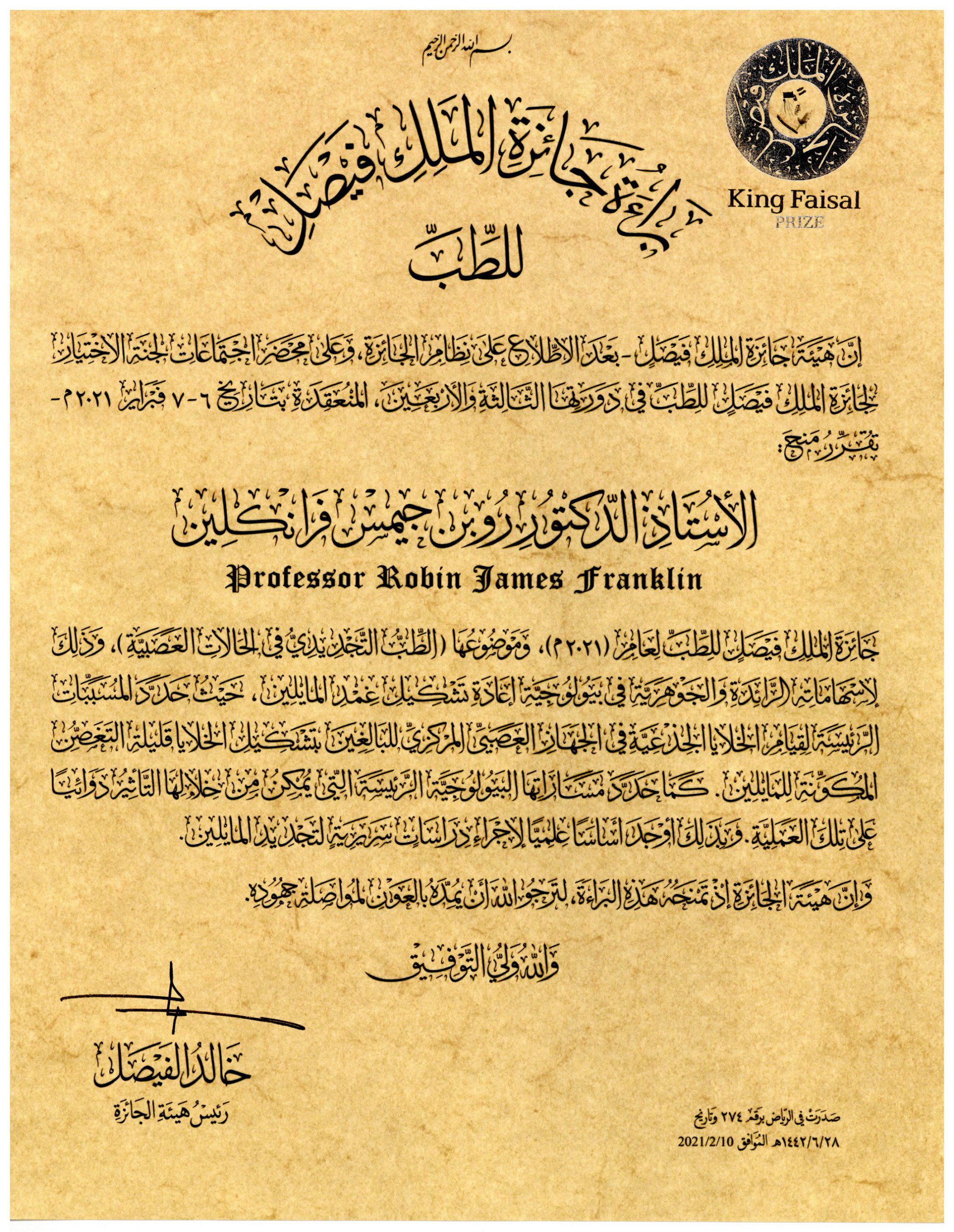

Professor Robin James Milroy Franklin
King Faisal Prize in Medicine 2021 Laureate
Topic: "Regenerative Medicine in Neurological Conditions"
We have been able to go from fundamental biology to clinical trials in patients with MS

Robin Franklin obtained his BSc. in Neuroscience from University College London in 1985, a BVetMed in Veterinary Medicine from Royal Veterinary College London in 1988, and His PhD in Neuroscience from University of Cambridge in 1992. He spent most of his career at the University of Cambridge starting as research fellow in 1991, until he attained the professorship in 2005. He is currently at the Wellcome Trust-Medical Research Council Cambridge Stem Cell Institute, the Director of the UK MS Society Cambridge Center for Myelin Repair at the University of Cambridge, and a Professor of Stem Cell Medicine at the University’s Clinical School. He previously served as a Professor of Neuroscience in the University’s School of Biology.
Professor Franklin’s main research questions focused on how stem cells in the adult brain respond to injury, how they contribute to regeneration, and how they are affected by aging. He has made many outstanding original contributions to
in the University’s School of Biology.
myelin biology that have had important applications for clinical neurology, especially multiple sclerosis. He has been a pioneer in the biology of remyelination, an area in which he is widely acknowledged as the world’s leading expert, and where he has made many seminal contributions. These include: identifying the role of the innate immune response, the effects of aging and how they can be reversed, the activation and plasticity of CNS stem cells following injury, the transcriptional and epigenetic control of CNS stem cell differentiation, and the first demonstrations of remyelination by transplanted oligodendrocyte progenitor cells and olfactory ensheathing cells, the latter led to a successful clinical trial in spinal cord injury in which he played a central role.
His work opened the exciting possibility of pharmacological enhancement of remyelination, which has implications for a whole range of CNS conditions, not just MS. His studies on the remyelination enhancing properties of metformin and RXR are the basis of current clinical trials. His extensive publications of over 270 peer-reviewed papers in this area include many landmark studies for which he is recognized worldwide. He was the recipient of the Barancik International Prize for Research Innovation in 2017, and was elected as a Fellow of the Academy of Medical Sciences in 2016.
This biography was written in the year the prize was awarded.





